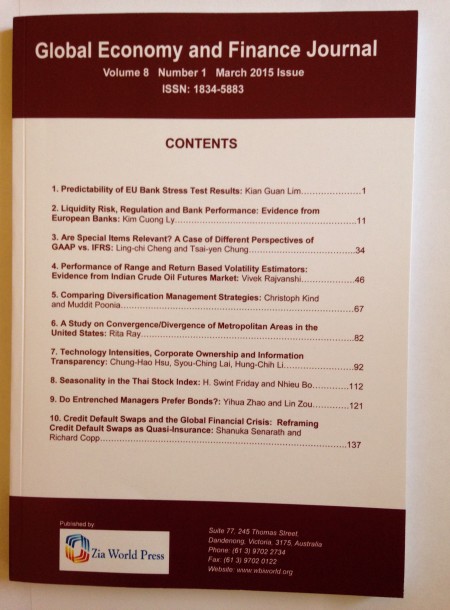Corruption, Provision of Public Good, and Share of Government Expenditure: Evidence from Emerging Economies

Global Economy and Finance Journal
Volume 7 Number 2, September 2014, Pages: 19-41Corruption, Provision of Public Good, and Share of Government Expenditure: Evidence from Emerging Economies
The paper examines the impact of corruption on the share of government expenditure, related to the provision of public goods in health, education, and military sectors. The paper introduces a theoretical model that applies “the Samuelson rule of public good provision” to illuminate how corruption increases the cost of providing public goods and hypothetically leads to the underprovision of public goods in some specific sectors. The paper then provides an empirical investigation on how an increase in corruption can influentially mislead the share of government expenditure, focusing on 39 emerging market countries during the period of 1999 – 2010. The results suggest that corruption stimulates the expenditure share on military while lowering the share of spending in health and education. These results are significant and robust across a variety of specifications, and are consistent with the findings of previous studies.JEL Codes: H5, H7, D73, O57
